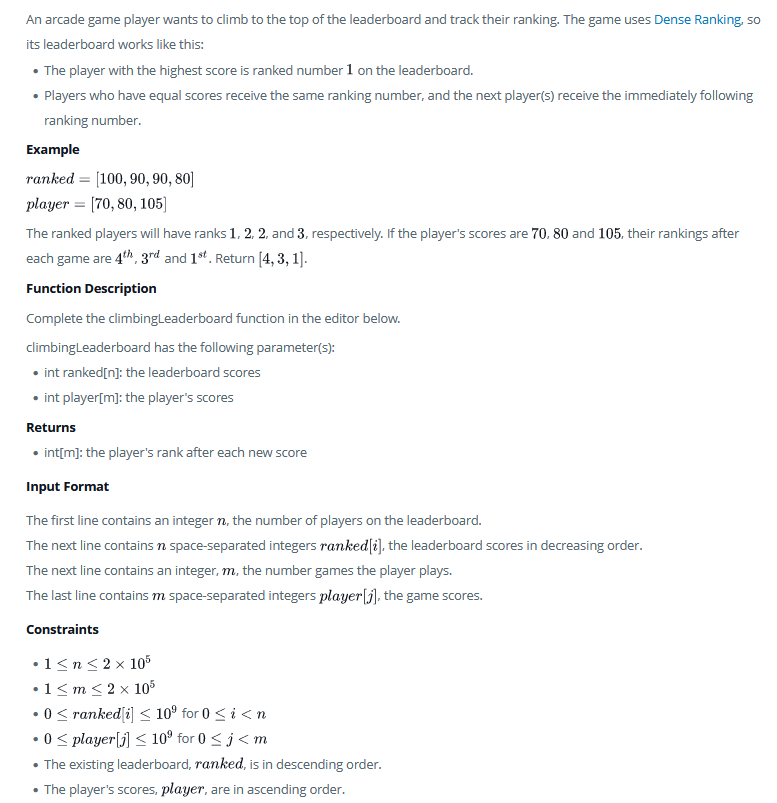I am trying to solve the Climbing the leaderboard problem on Hacker Rank. My code passes all the test cases except Test Cases 6 to 9, which I assume are using large data sets.
I'm using binary search to find the optimal insertion point for each score and using the index as the rank. I know there are loads of solutions online but I want to pass the test cases with my own code.
def climbingLeaderboard(ranked, player):
climb = []
ranked2 = sorted(set(ranked),reverse = True)
for i in player:
if i in ranked2:
climb.append(ranked2.index(i)+1)
elif i > ranked2[0]:
climb.append(1)
ranked2.insert(0, i)
elif i < ranked2[-1]:
climb.append(len(ranked2) + 1)
ranked2.append(i)
else:
a = binary_search(ranked2, i, 0,len(ranked2))
climb.append(a+1)
ranked2.insert(a, i)
return climb
def binary_search(arr, n, lo, hi):
mid = int((hi+lo)/2)
if lo > hi:
return lo
elif arr[mid] < n:
return binary_search(arr, n, lo, mid -1)
elif arr[mid] > n:
return binary_search(arr, n, mid + 1, hi)
else:
return mid
Where can I optimise my code?

